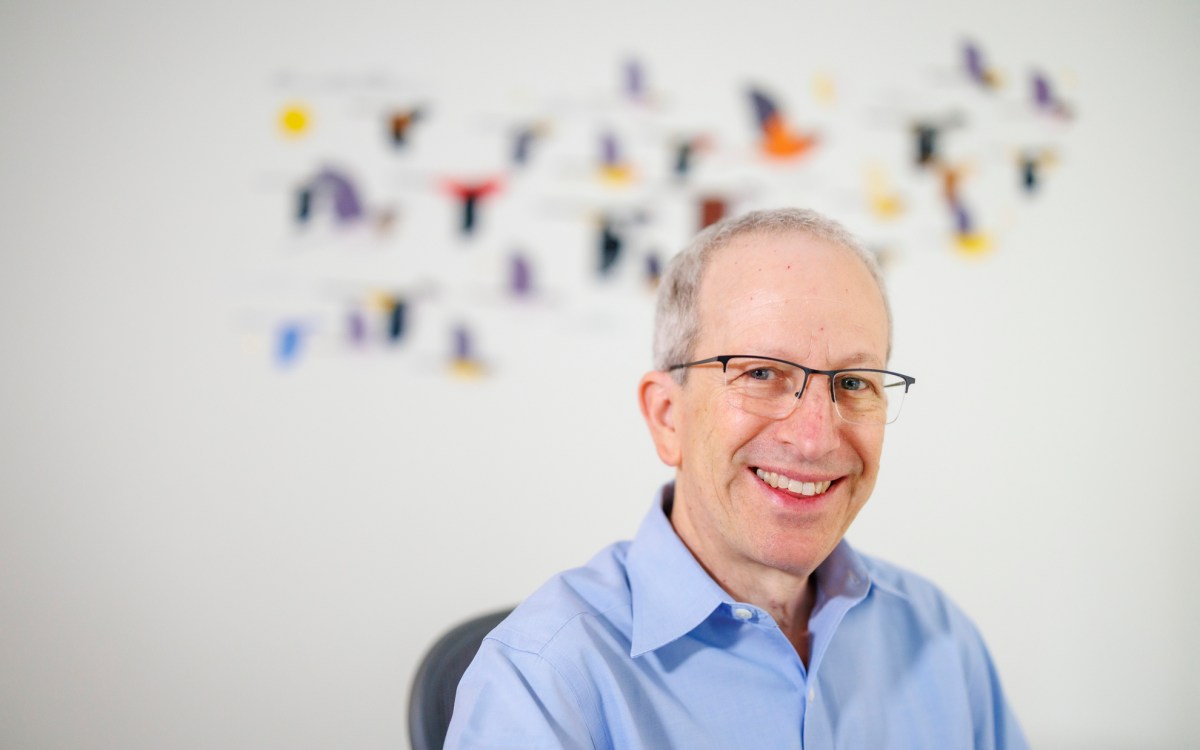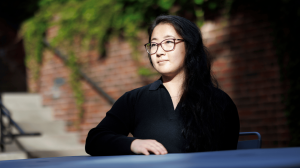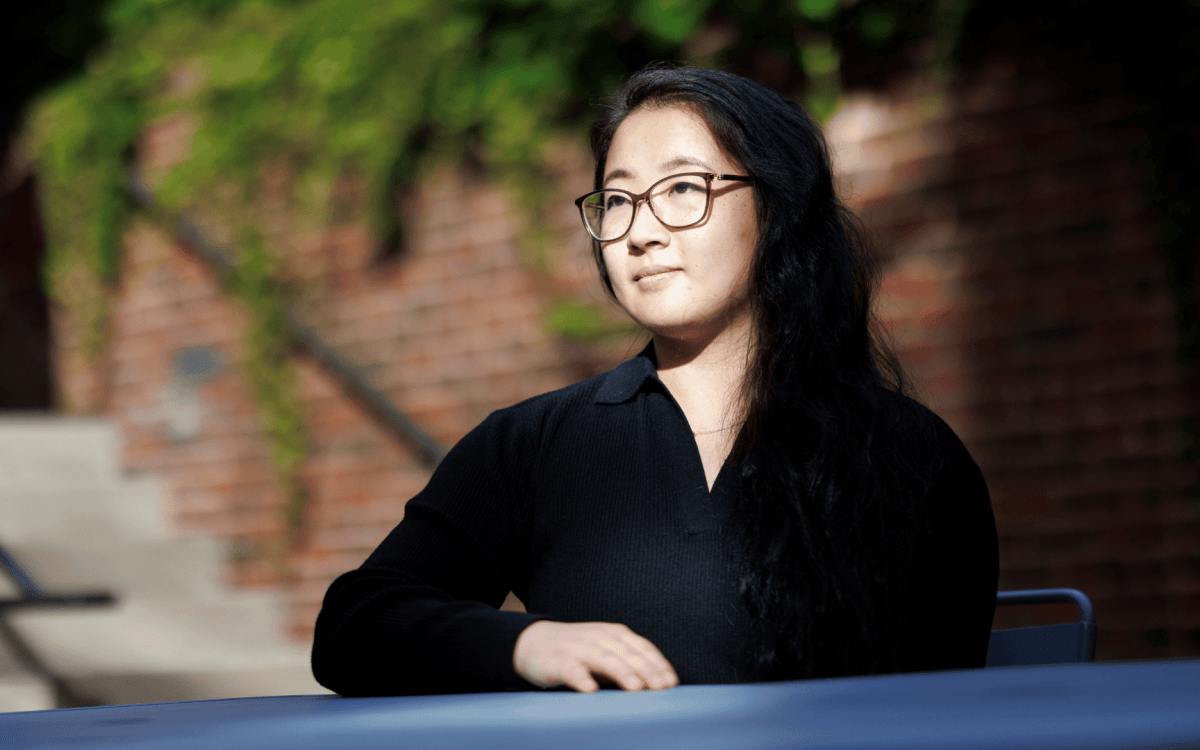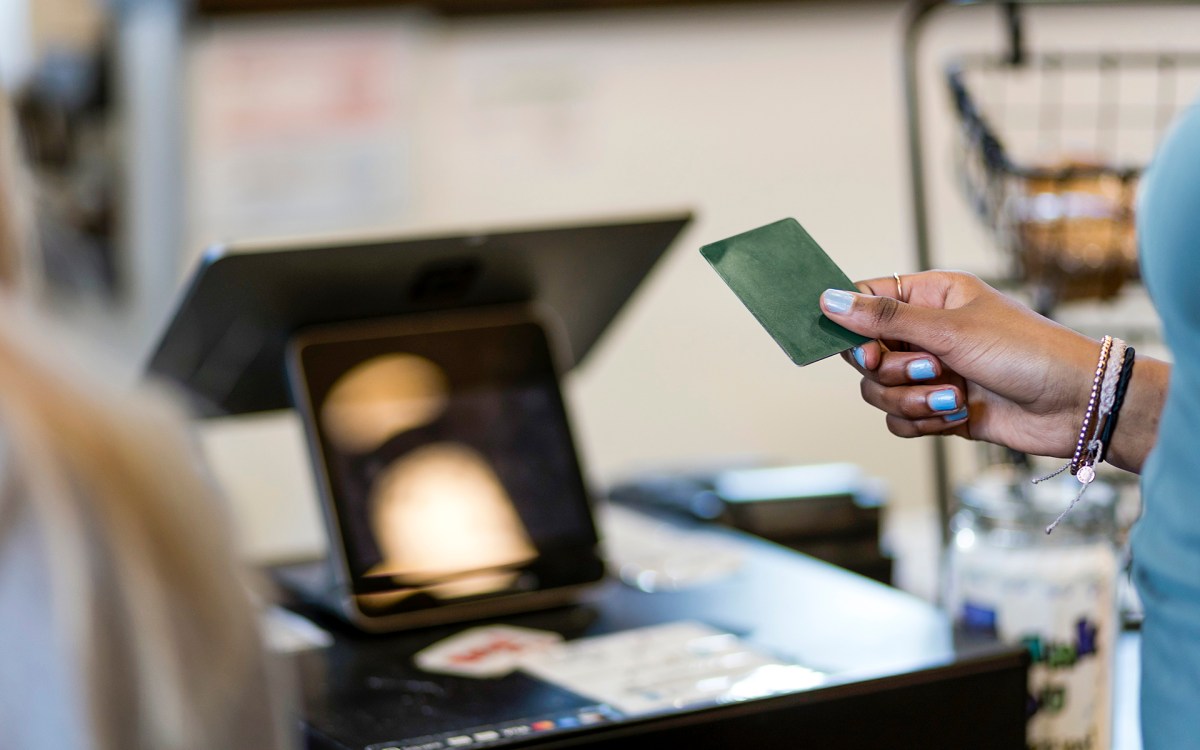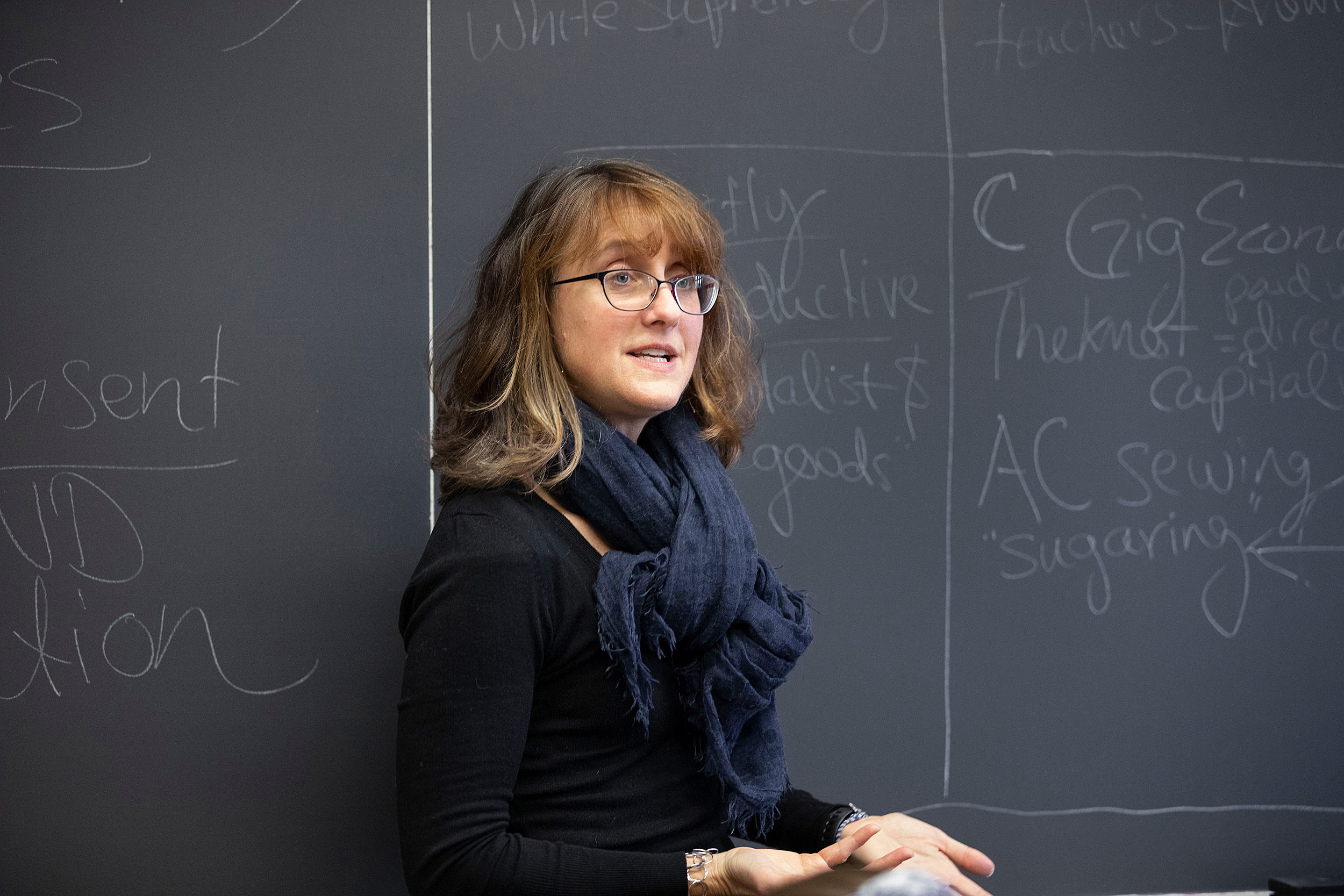
In the course “Love’s Labors Found: Uncovering Histories of Emotional Labor,” Caroline Light and her students scrutinize the myriad ways emotion and work intersect.
Kris Snibbe/Harvard Staff Photographer
Hidden costs of emotional labor
Examining why the culture undervalues some necessary jobs, many of which tend to be disproportionately held by women
Is a smiling flight attendant performing emotional labor? How about the harried mom baking cupcakes for a kindergarten class, or your friend who’s always ready to listen and dispense advice?
The term “emotional labor” was first coined in 1983 by sociologist Arlie Russell Hochschild to refer to jobs that require people to manage the feelings of others at the expense of their own. Consider, for instance, how child-care workers and teachers must maintain a cheerful, positive tone with their charges and parents, regardless of how they feel.
The concept has been expanded and become a lens to view a variety of paid and unpaid work, including household chores and household management, social organizing at the office, and intimate relationships, with an eye toward the hidden, unacknowledged costs of time, effort, and stress. And in the seminar course “Love’s Labors Found: Uncovering Histories of Emotional Labor,” Caroline Light and her students scrutinize the myriad ways emotion and work intersect, encouraging students to think critically about the connections between labor and identity, and how their experiences fit into larger systems.
“Emotional labor has become somewhat of a buzzword in the past five years or so, and doesn’t mean the same thing for a historian, or a sociologist, or psychologist,” said Light, director of undergraduate studies and senior lecturer on studies of women, gender, and sexuality. “It resonates so much for this generation of students, because many of them see themselves as producers of certain forms of under-remunerated, unremunerated, underacknowledged, or invisible forms of labor,” including peer counseling, tutoring, and volunteer work.
The course covers current issues of visibility and lack of economic compensation for “work that is disproportionally done by female-identified people to reproduce the workforce [through having children] and then to maintain these kinds of structures that we depend on in a capitalist economy,” said Light.
“Some of my favorite readings were about ‘do what you love’ messaging, and how this messaging is mobilized to make people more productive …”
Constance Bourguignon ’20
Topics included indentured servitude in the U.S. and abroad, the “wages for housework” debate, informal and formalized sex work, and the labor of reproduction.
“I designed the class to bring critical race theory and gender studies together into a conversation around the history of this thing we’re calling emotional labor and the histories of value extraction that are embedded in settler colonialism, racial capitalism, and patriarchy — enmeshed systems that frame the way workers produce and consume today,” explained Light.
Students read work by theorists of labor, affect, and oppression including Sara Ahmed, Audre Lorde, Iyko Day, and Cedric Robinson. The readings bring new dimensions to the original notion of emotional labor and raise questions about the influence of technologies, governments, and social relationships on current and future work structure.
Constance Bourguignon ’20, a joint concentrator in Romance languages and literatures and studies of women, gender, and sexuality, plans to be a high school teacher and was drawn to the course because of its focus on vital care work that is often underpaid and undervalued.
“Some of my favorite readings were about ‘do what you love’ messaging, and how this messaging is mobilized to make people more productive, which is something that can be applied, among other things, to being a teacher,” said Bourguignon. “There’s this weird idea that if you’re doing what you love, then you don’t need to be paid as much for it, and that it isn’t as valuable. In terms of inequality, not everyone has equal access to doing what they love, and so [the message] kind of shames people who come from a socioeconomic, or racial, or gender background where they’re made to perform labor that they don’t necessarily enjoy.”
“My students have been able to apply Marxist, feminist, and critical race theories to the labor that they do, whether it’s paid work or volunteering, and how it becomes commodified in the service of their institutional community.”
Caroline Light, course instructor
Bourguignon and more than 80 other students entered the lottery for the course, now in its second year and offered jointly by the Committee on Ethnicity, Migration, Rights and the Studies of Women, Gender, and Sexuality Department. Most of the 17 students in “Love’s Labors Found” were seniors, and many came to the course from other concentrations, including computer science and English.
“Caroline Light is one of the best professors I’ve had at Harvard, and her class has been one of the most intellectually fulfilling experiences I’ve ever had,” said Angela Hui ’20, an English concentrator. “I appreciated how deeply this class makes us think and how many viewpoints and analytical approaches we’ve engaged with. Interdisciplinary fields like WGS are extremely valuable, and a comprehensive understanding of any issue requires thinking across disciplinary boundaries.”
For Light, the interdisciplinary approach to studying emotional labor lends itself to more nuanced analysis and application to students’ lives in the classroom, at Harvard more broadly, and in the world beyond college.
“My students have been able to apply Marxist, feminist, and critical race theories to the labor that they do, whether it’s paid work or volunteering, and how it becomes commodified in the service of their institutional community,” she said.
“Next year, many of them will graduate and enter various workplaces, some in economically powerful spaces like finance and consulting, and for some, their class escalation may be significant after they leave Harvard. I hope they’ll take with them a certain critical vision that helps them better diagnose their experiences, but also to see how their experience as workers is interconnected with other flows of labor, capital, and value in a global community.”
“We deal with really intense, emotional issues in class, but we also try to look at some of the ideological and theoretical modes of resistance in the readings and from each other,” said Bourguignon. “Sometimes it’s dark, but there are ways to fight back.”
